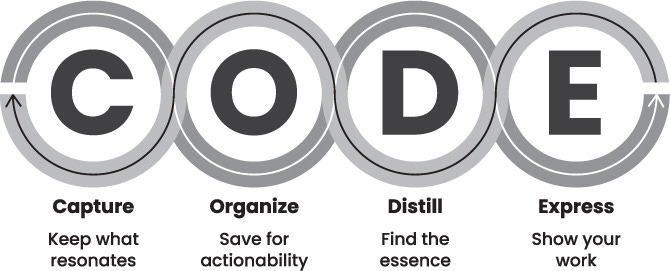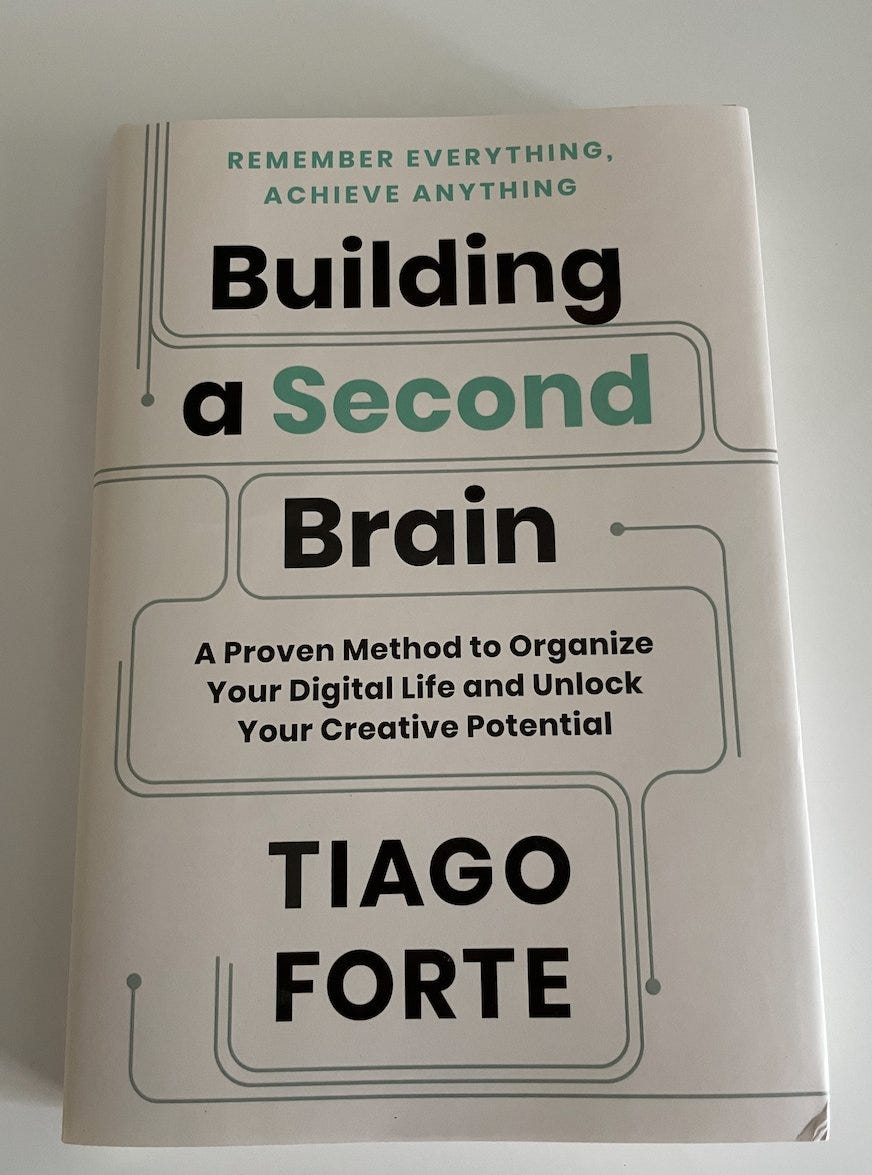BUILDING A SECOND BRAIN BY TIAGO FORTE
One of the best books I read this year. A book for everyone alive today.
Building A Second Brain by Tiago Forte is a book for everyone in the 21st Century, especially the creators.
We are in an age where there is more information than we can ever remember at once. We are deluged in a sea of images, words, videos, and other forms of media that are drowning us.
The Second Brain is a simple idea, we can create an extension of our brain on another device. The device can help us remember more than we would do on our own.
Each of us has had that experience when we remember a thing and the next moment, we have forgotten. We tell ourselves, "I don't have to write it, I will remember". We always forget.
Tiago Forte, in this book, Building A Second Brain shows how anyone can build a system of retention and application. The goal of acquiring knowledge is not just to know, it is to apply. Tiago does an excellent job of showing how one can do this.
I was surprised to find out that the methods of retention and application are old. Several centuries ago, different scientists, artists, and creators faced the same problems that we have today, of course, in a less demanding manner than ours. They developed systems that helped them triumph. We can too.
The Second Brain is built around 4 central ideas that Tiago tagged, CODE.
Capture: Keep what resonates
Organize: Save for actionability
Distill: Find the essence
Express: Show your work
This system will teach you how to Capture the best ideas. Organize them in an actionable manner. Distill them in an excellent way that lets you find the use in them and most importantly how you can use them, Show your work.
So far, Building A Second Brain is the best book I have read on the subject of knowledge collection. It contains stories, anecdotes, and quotes from way back in history. I believe it is a book for everyone in the contemporary age. We all need a second brain.
Here are some quotes I took down.
According to the New York Times , the average person’s daily consumption of information now adds up to a remarkable 34 gigabytes.
Research from Microsoft shows that the average US employee spends 76 hours per year looking for misplaced notes, items, or files. 3 And a report from the International Data Corporation found that 26 percent of a typical knowledge worker’s day is spent looking for and consolidating information spread across a variety of systems. 4 Incredibly, only 56 percent of the time are they able to find the information required to do their jobs.
You are on your smartphone just like everyone else, but you aren’t doing what they are doing. You are creating value instead of killing time.
Only when we declutter our brain of complex ideas can we think clearly and start to work with those ideas effectively.
In its most practical form, creativity is about connecting ideas together, especially ideas that don’t seem to be connected.
What is the point of knowledge if it doesn’t help anyone or produce anything?
A common challenge for people who are curious and love to learn is that we can fall into the habit of continuously force-feeding ourselves more and more information, but never actually take the next step and apply it. We compile tons of research, but never put forward our own proposal. We gather untold business case studies, but never pitch one potential client. We study every piece of relationship advice available, but never ask anyone out on a date.
A knowledge asset is anything that can be used in the future to solve a problem, save time, illuminate a concept, or learn from past experience.
We need an external medium in which to see our ideas from another vantage point, and writing things down is the most effective and convenient one ever invented.
We all need this book because we all need to organize the gigabytes of information we get everyday.




The average Persons daily consumption of information adds up to 34GB?? What an outrageous figure. I wonder the terabytes we use in a year
Awesome 👍.
The summary makes want to read it soonest. Still on a book by John Maxwell though.
Thanks for always motivating me to be up and doing with my reading speed.